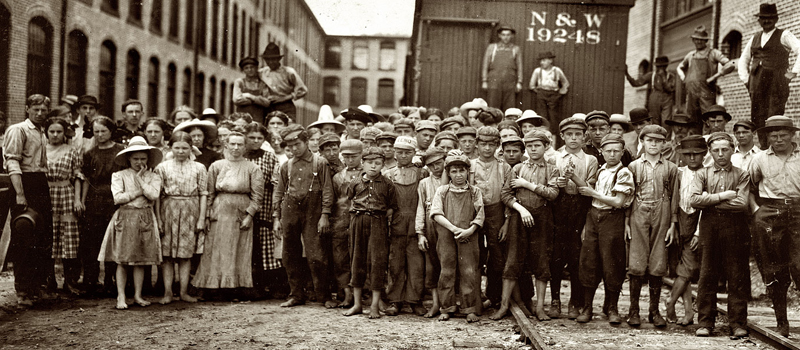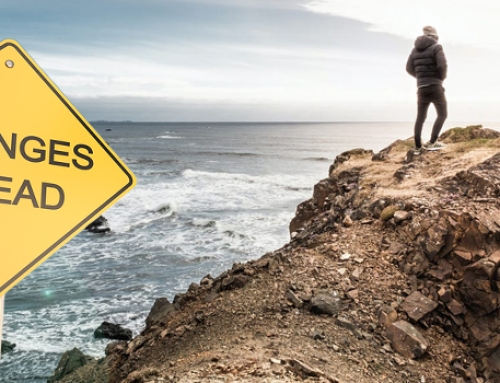With my days of raising my own children past me, I look to the younger set in their efforts in teaching those they give birth to the best things that this earth has to offer. One of the best ways a parent could prepare their children for this world is to give them the skills they need to survive in any climate, for any circumstance, for any amount of time.
One thing that seems to be getting lost, and being left by the wayside is that skill of “figuring out the puzzle”. That when presented with a dilemma or a conundrum the younger set coming up don’t have the aquity to think it through to what could be the desired end. They simply just accept it as it is, and live with it… not knowing how to fix it, or mend the problem or build a new one from scratch. This problem solving tool that I was instilled with, is somehow being left out of today’s traditional instructions.
As adults, I believe it is our duty to introduce children to Self Reliance activities at a very young age. This needs to be done in a fun, but serious manner, so as to avoid fear. The last thing we want to do is introduce a boogie man when there is none!
Over the years, I have always treated young children as mini-adults with an ability to rationalize, understand, and feel the emotions and body language of the adults around them. I love that children are fresh and unspoiled by life and it’s failures. Quite simply, I love kids.
For no other reason than that, I wish to share my thoughts on preparedness for families with little ones under the roof.
12 Tips for Families with Children
1. Include your children in the family’s self reliance discussions. Explain what you are talking about in a calm, matter-of-fact manner and answer questions honestly and simply. Focus the conversation on the safety issues that will ensure their survival and help them to thrive.
2. Like we did at a young age, teach your young children to memorize basic personal information such as full name, address, telephone number, and the names of their parents or guardians. This will be invaluable in the event they become separated from their family following any catastrophe, even it is getting lost in the mall.
3. Teach your children the responses they should be doing if a disaster hit while they are at school or even at daycare. Be sure to establish a backup plan with them so that someone is available to pick them up and/or care for them if you are unable to do so. A good idea would be to have the backup person check on them, regardless, just to be sure. (After all, you may be hurt and unable to call the backup person yourself.) Make sure you establish a family password that they know whoever is coming to pick them up HAS TO USE, for them to go with the person.
4. Make sure the school or daycare center always has your current emergency contact information for your children. They should also have a list of persons authorized to pick your children up from school. The last thing you want is for a kidnapper to take advantage of the chaos and snatch your child away for some nefarious reason.
5. Teach them, as it is age appropriate how to do basic self-defense. Let them know if they are feeling threatened or if someone is using threatening language at them that they have every right to defend themselves. This panty waste mumbo jumbo of not striking someone or fighting back is nonsense in the real world. Teach them to act when they are being assaulted or battered. (This goes for any age,, child or adult… is someone starts to hurt them, have them fight back and look for the chance to get away.)
6. Teach them how to analyze any situation so that they can act appropriately. Help them figure out instances that may require some hard physical action. And the other times when it does not. Help them build their confidence that they to can handle the hard stuff, even as early as 3 or 4, that may come their way in life.
7. Teach your children how to use 911 and practice what they should say to the dispatcher when they do call.
8. Educate your children regarding the need to stay away from downed trees, downed utility poles and any wires that may be lying on the ground. Also teach them to recognize the smell of gas and – this is important – to tell an adult they smell gas even if they are not 100% sure. Include instructions to get outdoors and leave the home or building if they even think they smell gas.
9. Practice what you teach. Be the example of what you are showing them. Have them participate in your practice,, remember Practice Makes Permanent.
10. If you live in an earthquake or other natural disaster zone, teach them basic responses needed to be taken to get to safety. Whether it be an earthquake, tornado, hurricane or floods.
11. Prepare a mini bug-out-bag for each child. Include a family picture, a toy, and a game, book or puzzle to keep him or her occupied. Also include some treats.
12. In the adult/family bug-out-bag, include copies of the children’s birth certificates, recent photos and additional kiddie comfort foods.
Overall TakeAway
One thing I used to hate when I was a child was grown-ups talking about something and assuming that I was either not interested or worse, unable to understand. In reality, I had an innate curiosity and even though I only understood half of what the adults were saying, I still soaked it up like a sponge.
With that in mind, I can not think of a better situation for including your children than family discussions on how to best handle what comes their way. Teach them that they too can be in control of their own worlds and circumstances therein.






